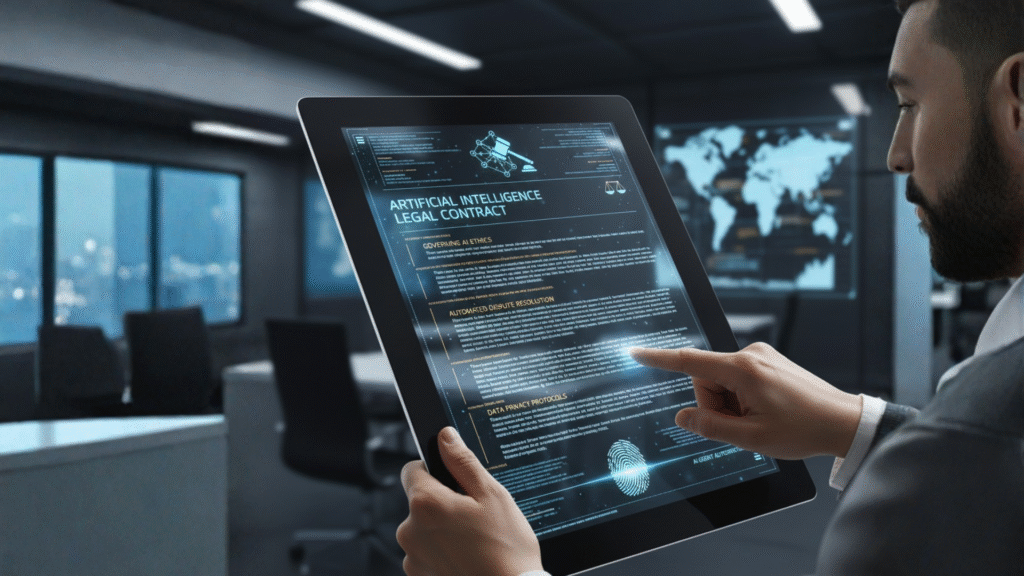AI is dramatically changing the legal industry, helping law firms handle huge volumes of documents, accelerate research, and focus more on strategic client work. Lawyers and legal staff now have access to powerful AI tools that streamline repetitive tasks—without sacrificing the rigorous standards of accuracy, confidentiality, or compliance central to legal practice.
The Modern Legal Document Challenge
Law firms face unprecedented document volumes and complexity. Partners and associates spend countless hours reviewing contracts, analyzing case files, sifting through discovery materials, and researching precedents. Traditional approaches involve manual document review that can take weeks for large cases, legal research that requires extensive database searches, and drafting processes that start from scratch for each client matter.
The challenge extends beyond volume. Modern legal practice demands:
- Speed without sacrificing accuracy as clients expect faster turnaround times
- Comprehensive analysis that catches every relevant detail, clause, or precedent
- Cost efficiency while maintaining the highest professional standards
- Secure handling of sensitive client information and privileged communications
- Competitive differentiation in an increasingly crowded legal marketplace
Growing client expectations and competitive pressure mean firms must deliver faster insights and higher value, often with less time and fewer resources. Meanwhile, ethical and professional standards demand verifiable, authoritative work, and secure handling of sensitive client data.
How AI Transforms Legal Document Analysis

AI-powered platforms are automating and accelerating the document review lifecycle in transformative ways:
Automated Review and Summarization
AI reads and analyzes vast collections of contracts, court documents, and evidentiary records in a fraction of the usual time. Modern legal AI can process hundreds of pages per minute, rapidly summarizing documents and flagging key clauses, deadlines, modifications, and obligations.
This capability proves invaluable for:
- Merger and acquisition due diligence where firms review thousands of contracts and agreements
- Litigation discovery involving massive email archives and document collections
- Contract portfolio analysis for ongoing compliance monitoring
- Regulatory filings requiring comprehensive document cross-referencing
Advanced Search and Comparison
AI instantly compares versions of contracts or provisions to spot changes, inconsistencies, and missing terms. Unlike traditional keyword searches, AI understands legal context and relationships between clauses, enabling complex queries like “What are all the indemnification clauses in this set of agreements?” to be answered within seconds.
The technology excels at:
- Version control analysis tracking changes across multiple contract iterations
- Template compliance checking ensuring documents meet firm or client standards
- Cross-referencing provisions across related agreements
- Risk assessment by identifying potentially problematic language or missing protections
Data Extraction and Structured Analysis
AI extracts critical information—dates, parties, definitions, fees, termination conditions—from large sets of agreements and organizes this data into structured tables for further analysis or client reporting. This automation eliminates hours of manual coding and data entry while reducing human error.
Applications include:
- Contract database creation for ongoing portfolio management
- Compliance monitoring tracking key dates and obligations
- Financial analysis extracting pricing and payment terms across agreements
- Vendor management organizing supplier contract terms and conditions
E-Discovery and Litigation Support
AI accelerates e-discovery processes, helping identify relevant evidence, privileged communications, and material inconsistencies quickly. The technology detects patterns and anomalies in massive sets of emails, chat logs, and transactional records that might elude human reviewers, even in well-staffed review teams.
Benefits include:
- Privilege review automatically flagging attorney-client communications
- Relevance scoring prioritizing documents most likely to contain crucial evidence
- Pattern recognition identifying unusual communication patterns or behaviors
- Cost reduction significantly lowering e-discovery expenses for clients
AI-Powered Legal Research Enhancement

AI is revolutionizing legal research across multiple dimensions:
Comprehensive Database Integration
AI searches trusted legal databases like Westlaw, LexisNexis, and specialized practice area resources, synthesizing relevant case law, statutes, and secondary sources using natural language queries. This integration means lawyers can ask complex research questions in plain English and receive comprehensive answers with proper citations.
Context-Aware Research Results
Modern legal AI goes beyond keyword searches by understanding legal context and retrieving authorities that match specific fact patterns, jurisdictions, and arguments. The technology considers:
- Jurisdictional relevance prioritizing applicable law for specific cases
- Factual similarity finding cases with comparable circumstances
- Legal precedent hierarchy understanding the weight of different authorities
- Recent developments highlighting new cases or statutory changes
Research Quality and Verification
AI-generated research includes step-by-step reasoning and clarifying follow-up questions to deepen results. Importantly, all outputs include direct citations so lawyers can verify every reference and ensure accuracy—maintaining the verification standards essential to legal practice.
Drafting and Strategic Document Creation
AI generates first drafts of legal documents, contracts, and pleadings using customizable templates and established legal language, saving lawyers hours of initial drafting time. The technology suggests relevant clauses, definitions, and formatting standards based on firm best practices and specific client needs.
This capability extends to
- Contract drafting with industry-specific terms and conditions
- Pleading preparation using jurisdiction-appropriate format and language
- Legal memoranda with proper citation format and logical structure
- Client communications maintaining professional tone and accuracy
Implementation Challenges and Solutions
Ethics and Professional Responsibility
Law firms have ethical obligations to maintain competence with relevant technology while understanding AI limitations. Professional-grade AI solutions use curated, authoritative legal databases and maintain complete transparency about sources for full traceability.
Key considerations include:
- Source verification ensuring all AI-generated content can be independently verified
- Bias mitigation using diverse training data and human oversight
- Confidentiality protection maintaining attorney-client privilege in AI-assisted work
- Professional judgment ensuring AI serves as a tool rather than a replacement for legal analysis
Security and Compliance Requirements
Industry-specific AI platforms ensure robust security and compliance with regulatory standards. Privacy protection, privilege maintenance, and secure data handling are built into professional legal AI systems, distinguishing them from general-purpose tools.
Requirements include:
- End-to-end encryption for all document processing and storage
- Access controls limiting AI system access to authorized personnel
- Audit trails tracking all AI interactions for compliance documentation
- Data residency ensuring client data remains within appropriate jurisdictions
The Unified Platform Advantage
While many firms use multiple point solutions for research, drafting, and analysis, emerging unified AI platforms offer significant advantages. Platforms like Qolaba provide:
- Integrated workflows combining document analysis, legal research, and drafting in a single environment
- Multiple AI model access enabling firms to use the best AI for specific tasks without managing separate subscriptions
- Consistent security standards across all AI interactions and document processing
- Scalable pricing models that grow with firm needs and usage patterns
- Collaborative features enabling team-based document review and research projects
This integration reduces workflow fragmentation, ensures consistent quality and compliance, and provides cost-effective scaling for firms of all sizes.
Real-World Impact Across Practice Areas
Different legal specialties benefit from AI in unique ways:
- Corporate law firms complete due diligence projects faster and more thoroughly
- Litigation practices manage discovery more efficiently and identify key evidence quickly
- Contract specialists review and analyze agreement portfolios at unprecedented speed
- Regulatory practices monitor compliance requirements across multiple jurisdictions
- Small and mid-size firms access analytical capabilities previously available only to large firms
Conclusion
AI is redefining what’s possible for legal document analysis and research, enabling lawyers to deliver faster, more reliable, and higher-value outcomes for clients. By automating routine but critical tasks with the right blend of professional-grade AI and human oversight, legal professionals can focus on analysis, counsel, and advocacy—the core elements of legal practice.
The technology transforms law firm economics by reducing time spent on document review while improving accuracy and comprehensiveness. As AI capabilities continue advancing, firms that strategically implement these tools gain competitive advantages in client service, operational efficiency, and market positioning. For firms seeking comprehensive solutions, unified AI platforms like Qolaba provide the integrated tools needed for the rigorous, confidential, and client-focused demands of modern legal practice.





